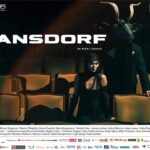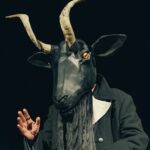21 October | 16:00 – Jewish State Theatre of Bucharest

1945. Barașeum Theatre. A Yiddish theatre ensemble run by the actor, director and executive Iacob Mansdorf are coming together for the remaking of a performance, this way resuscitating, through the filter of love for theatre, a neuralgic time that was yet to become history. A mysterious lady shows up in order to propose a play she’s written. The performance is based on real events and real people.
[same_day_events_link]
By: Mihai Lukács
With texts by: Aurel Baranga, Iosif Bercovici, Maria Davidescu, Zalman D. Dessmond, M.Lax, B.Lebli, I.Leiwandman, Iacob Mansdorf, Isaiia Răcăciuni, Lică Grunberg, I.Herzig, Hanna Kawa, Ion Nicola, Ițhoc Schapira, N.Stroe, Emil Suter, A.L. Zissu.
Cast:
Performer 1: Mircea Dragoman
Performer 2: Darius Daradici
Performer 3: Maia Morgenstern
Performer 4: Lorena Luchian
Performer 5: Andrei Miercure
Performer 6: Anka Levana
With the participation of TES ORCHESTRA:
Accordion: Bogdan Lifșin
Violin: Rodica Gancea, Feras Sarmini
Piano: Mihai Murariu
Cello: Sergiu Marin
Clarinets: Mihai Pintenaru
Directed by: Mihai Lukács
Set design: Oana Micu
Choreography: Michaela Zibileanu
Stage movement: Cabiria Morgenstern
Original music and sound design: Andrei Dinescu
Musical director and conductor: Bogdan Lifșin (TES Orchestra)
Light design: Radu Spiridon
Producer: Dialectic Centre, in collaboration with Jewish State Theatre of Bucharest
Co-financed by Administration of the National Cultural Fund.
Duration: 1h 30 min (no intermission)
Recommended age: 12+
Performance in Romanian and Yiddish with English surtitles
Mansdorf is a performance-research, a retrieval of the history of Jewish Theatre after the key moment of 1945, focusing on the story of the IKUF Theatre group, setting out to produce Yiddish-language performances. The performance becomes a framework for a debate on the themes and forms of expression addressed in Yiddish-language theatre at that time, in direct relation to a traumatic history, while connecting the past – i.e. the discussions about financial problems, the topics presented in the performances, the relationship with the audience – to a present in which we recognize many traces of the evoked years. (the NTF curator’s motivation)
Photo credits: Răzvan Leucea







